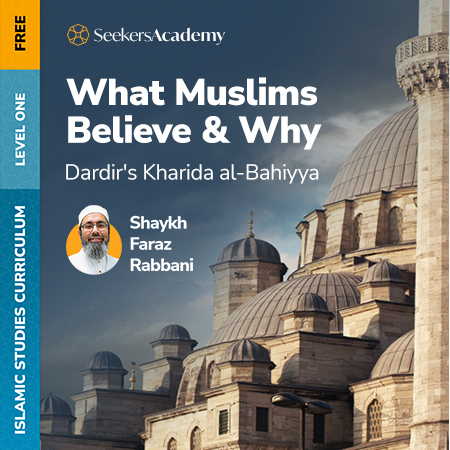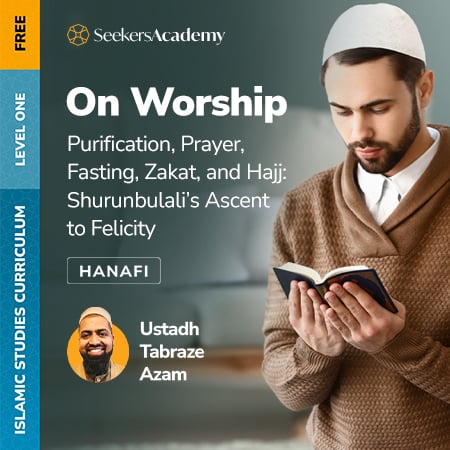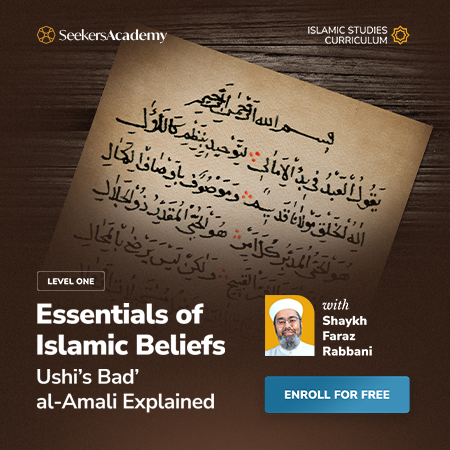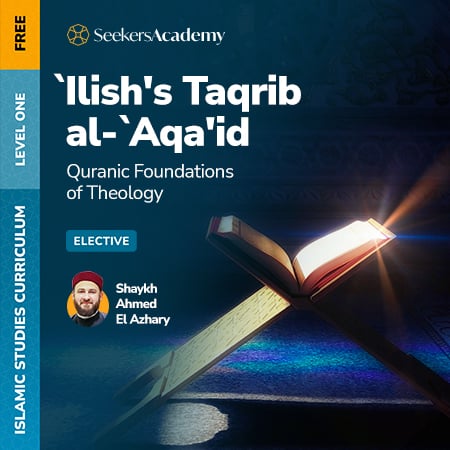
Take this course to understand the basic methods of Islamic logic and how to use them to gain evidence-based conviction in Allah Most High, His attributes, His messengers, and the afterlife. This knowledge that you will learn in this course is the context that will give your life its purpose.
- Teacher: Shaykh Faraz Rabbani
An introduction to the formal study of Islamic beliefs through a traditional manual of Islamic theology. Take this course to understand the basic methods of Islamic logic and how to use them to gain evidence-based conviction in Allah Most High, His attributes, His messengers, and the afterlife. This knowledge that you will learn in this course is the context that will give your life its purpose.
The course is an explanation of al-Kharida al-Bahiyya (“The Lustrous Pearl”), an introduction to the science of Islamic theology by the great theologian, spiritual master, and foremost Maliki jurist of al-Azhar, Shaykh Ahmad al-Dardir (d. 1201 A.H. / 1786 C.E.). The Kharida is a 71-line didactic poem that, in its own words, is “slight and small in size, but great in knowledge.”
For hundreds of years, it has been studied and memorized by beginners of Islamic theology, and is frequently quoted by students and teachers alike because of its pithy expressions. A downloadable copy of the course text in both English and Arabic is provided as part of the course materials.
- This is a second-level course in Level One.
- Before taking this course, take The Absolute Essentials of Islam (Hanafi) or The Absolute Essentials of Islam (Shafi‘i)
- Take this course before all courses in Level Two.
- Learn and use the basic logical methods of traditional Islamic theology
- Memorize the attributes of Allah Most High, His messengers, His angels, and other unseen beings
- Memorize the key events that will take place after death
- Develop evidence-based conviction in all of the above
- Understand how to turn mental conviction into spiritual certainty
- Appreciate the logical rigor of Islamic theology


